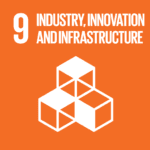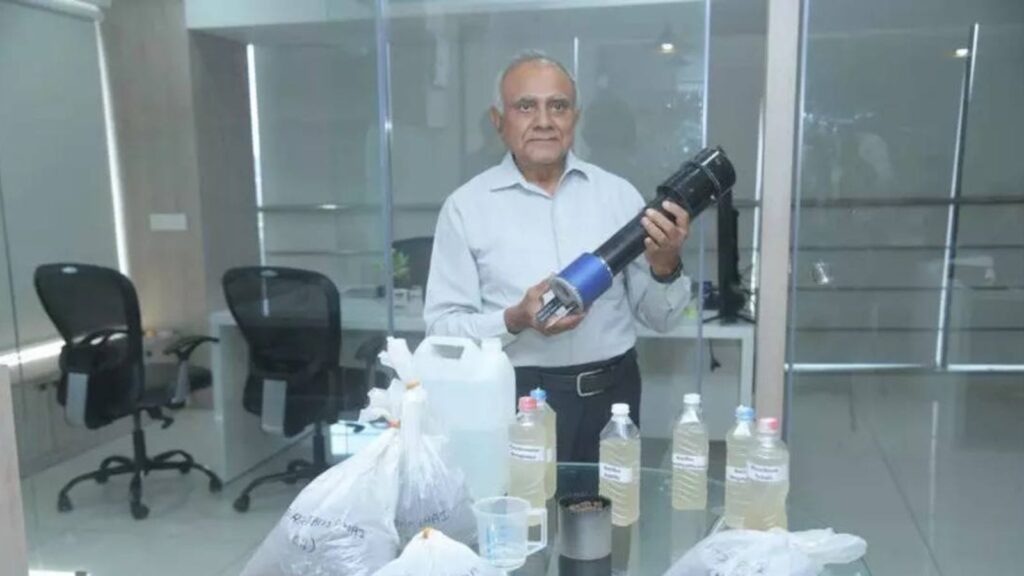Retired ISRO scientist unveils AI-powered soil analyser, revolutionizing agriculture testing.
Ahmedabad, India — April 2025 — In a groundbreaking development for the agricultural sector, former Indian Space Research Organisation (ISRO) scientist Madhukant Patel has introduced an AI-based soil analyser that can deliver comprehensive soil health reports within seconds—a revolutionary leap from the traditional methods that take weeks.
The innovation, combining artificial intelligence, spectroscopy, and nanotechnology, promises to transform soil testing practices, particularly in India’s vast farming communities.
RELEVANT SUSTAINABLE GOALS



A Breakthrough in Soil Health Diagnostics
Traditionally, soil testing in government laboratories relies on a laborious “wet chemistry method”—involving grinding, heating, and chemical treatment—which typically requires a fortnight or more for results. Patel’s handheld device, however, sidesteps these delays by offering instant, on-site soil assessments.
Using ultraviolet, visible, and infrared light, the AI-enabled analyser can measure nutrient levels, organic matter, humus, and carbon content critical for natural farming. Moreover, specially designed nanotechnology-based metal rods allow the device to capture a wider range of soil properties with unprecedented precision.
“This device measures not just nutrients but can also detect beneficial bacteria and fungi, essential for preparing soil for sustainable farming,” Patel explained, highlighting its broader ecological benefits.
Harnessing AI and Spectroscopy for Instant Results
At the core of Patel’s invention is spectroscopy—the study of how light interacts with matter. By embedding advanced sensors into the device, it analyzes about 400 grams of soil, capturing data that is instantly processed through artificial intelligence and machine learning algorithms. The resulting spectrograph produces a detailed soil health report card in seconds, eliminating the need for complex lab logistics.
“This handheld device democratizes soil testing, allowing even small farmers in remote villages to understand and manage their soil health efficiently,” Patel said.
In a significant move towards scaling up the innovation, Patel recently presented the prototype to top officials of the agriculture department. The department, along with major institutions like the Indian Farmers Fertiliser Cooperative (IFFCO) and Gujarat State Fertilisers and Chemicals (GSFC), has pledged to supply 5,000 soil testing reports to help calibrate and fine-tune the device’s accuracy.
Revolutionizing Agriculture at the Grassroots
The implications of Patel’s innovation stretch beyond technological advancement. Faster soil diagnostics mean farmers can make quicker, data-driven decisions regarding fertilization, crop selection, and land management—boosting yields, reducing input costs, and promoting sustainable practices.
As India gears up to meet its ambitious agricultural productivity and sustainability goals, tools like Patel’s AI-based analyser could play a pivotal role.
Agricultural experts believe that widespread adoption of on-the-spot soil health analysis could enhance the success of natural farming initiatives, support carbon sequestration efforts, and reduce the environmental impact of excessive chemical usage.
While the prototype has generated excitement, further testing and calibration are underway to ensure the device meets the diverse soil conditions found across India’s vast agricultural regions.
Nonetheless, Patel’s creation has already positioned itself as a potential game-changer, showcasing how science, technology, and agriculture can converge to forge a more resilient, farmer-friendly future.
As Patel aptly summarized: “Science should not stay confined to laboratories—it must empower those who feed the nation.”
Lead image courtesy of Times Of India
You may also be interested in :
Optimising Greywater Use in Agriculture: A Sustainable Solution For Indonesia Amid Climate Change




